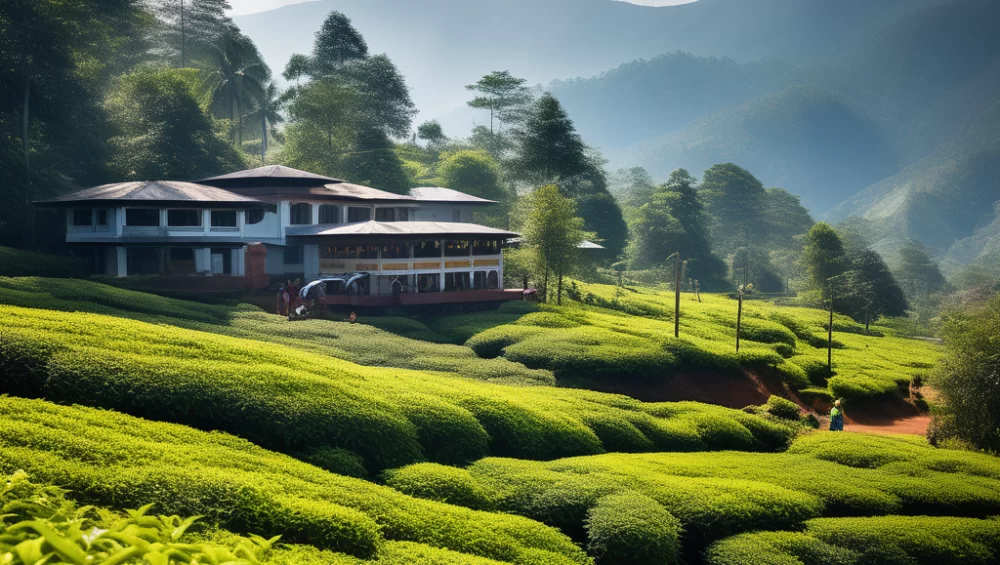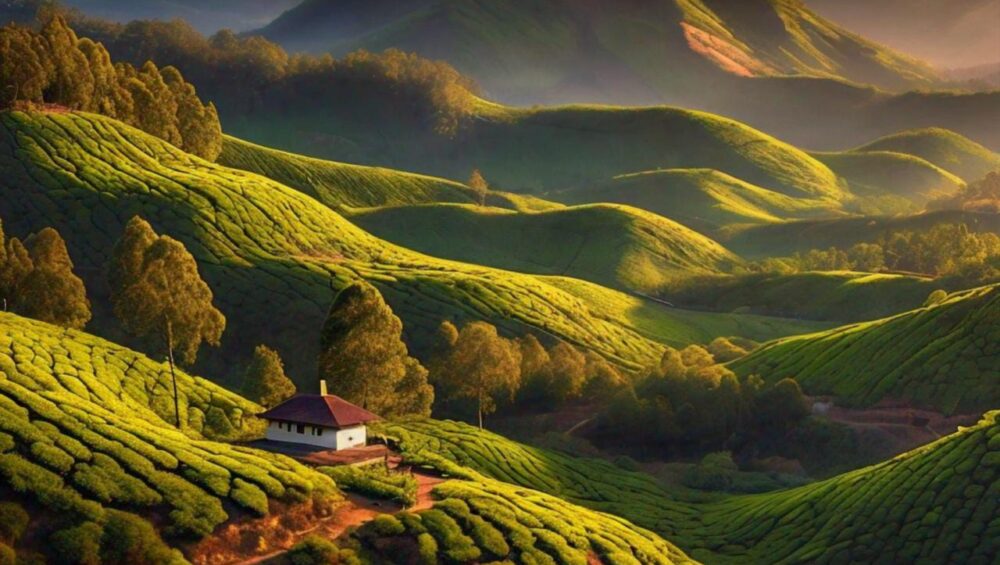From Tea Gardens to Chai Cafés: A Journey through Kerala’s Tea Culture
Brief overview of Kerala’s chai culture.
Importance of tea gardens and tea shops in Kerala.
History of Tea in Kerala
- Origins of tea cultivation in Kerala.
- Evolution of chai culture in the state.
Tea Gardens in Kerala
- Overview of major tea-growing regions.
- Impact of geography on tea cultivation.
Cultural Significance of Tea Gardens
- Role of tea gardens in Kerala’s economy.
- Influence on local communities and traditions.
Tea Production Process
- Steps involved in tea production.
- Traditional methods vs. modern techniques.
Exploring Kerala’s Tea Gardens
- Tourist attractions in tea-growing regions.
- Experience of visiting tea estates.
Tea Shops
- Proliferation of tea shops in Kerala.
- Unique characteristics of Kerala’s tea shops.
Chai Culture in Kerala
- Rituals and customs associated with tea drinking.
- Social significance of tea shops in Kerala.
Varieties of Tea
- Popular types of tea served in Kerala.
- Specialties and regional variations.
Tea Shop Experience
- Atmosphere and ambiance of tea shops.
- Interaction with locals and fellow travelers.
Culinary Delights
- Snacks and dishes paired with tea.
- Traditional Kerala treats available at tea shops.
Innovation in Tea Culture
- Modern trends in tea consumption.
- Influence of globalization on Kerala’s chai culture.
Preservation and Sustainability
- Efforts to conserve tea gardens and biodiversity.
- Sustainable practices in tea production.
Future Prospects
- Potential developments in Kerala’s chai industry.
- Emerging opportunities for tea enthusiasts.
1. Tea Gardens to Tea Shops: Immersing in Kerala’s Chai Culture
Kerala, famously known as “God’s Own Country,” is not just renowned for its breathtaking landscapes and serene backwaters but also for its vibrant chai culture. From lush tea gardens nestled in the Western Ghats to bustling tea shops lining the streets, Kerala offers a delightful journey for tea enthusiasts eager to explore its rich heritage and flavorsome brews.
2. History of Tea in Kerala
The history of tea in Kerala dates back to the late 19th century when the British introduced tea cultivation in the region. Initially, tea was grown in small plantations, but over time, it flourished, becoming an integral part of Kerala’s agricultural landscape. With favorable climate conditions and fertile soil, Kerala emerged as one of the leading tea-producing states in India.
3. Tea Gardens in Kerala
Kerala boasts several prominent tea-growing regions, including Munnar, Wayanad, and Nilgiri Hills. These picturesque landscapes are adorned with vast tea estates spread across rolling hills and valleys. The cool climate and high altitude contribute to the distinct flavor and aroma of Kerala’s tea, making it highly sought after in both domestic and international markets.
4. Cultural Significance of Tea Gardens
Tea gardens play a significant role in Kerala’s economy, providing employment opportunities for thousands of people. Beyond economic contributions, tea estates are intertwined with the cultural fabric of Kerala, shaping local traditions and livelihoods. The close-knit communities residing in tea-growing regions celebrate their heritage through festivals, music, and art, reflecting the deep-rooted connection to the land.
5. Tea Production Process
The journey from tea leaf to teacup involves meticulous craftsmanship and expertise. The traditional method of tea production involves plucking, withering, rolling, oxidizing, and drying. However, modern techniques have been introduced to enhance efficiency and quality, ensuring that Kerala’s tea maintains its distinctiveness while meeting global standards.
6. Exploring Kerala’s Tea Gardens
Visiting tea estates in Kerala offers a captivating experience for travelers. Guided tours allow visitors to witness the tea-making process firsthand, from plucking the tender leaves to savoring freshly brewed tea. The scenic beauty of tea plantations, coupled with the tranquility of the surroundings, creates a serene ambiance that leaves a lasting impression on visitors.
7. Tea Shops
In addition to tea gardens, Kerala is dotted with charming tea shops that cater to locals and tourists alike. These humble establishments, often adorned with colorful decor and bustling with activity, serve as social hubs where people gather to unwind and engage in lively conversations over a steaming cup of chai.
8. Chai Culture in Kerala
Tea shops hold a special place in Kerala’s social fabric, serving as communal spaces where people from all walks of life come together to bond over their love for tea. Whether it’s sipping chai with friends, discussing politics, or simply enjoying a moment of solitude, tea shops offer a glimpse into the heart and soul of Kerala’s vibrant culture.
9. Varieties of Tea
Kerala boasts a diverse range of tea varieties, each with its own distinct flavor profile and characteristics. From the robust flavors of black tea to the delicate notes of green tea, there’s something to suit every palate. Additionally, Kerala’s tea shops often offer unique blends and specialties, allowing visitors to explore and discover new favorites.
10. Tea Shop Experience
Visiting a tea shop in Kerala is more than just about enjoying a beverage; it’s an immersive experience that engages all the senses. The aroma of freshly brewed tea, the lively chatter of patrons, and the warmth of hospitality create an inviting atmosphere that welcomes travelers into the heart of Kerala’s chai culture.
11. Culinary Delights
No visit to a Kerala tea shop is complete without sampling some of the delicious snacks and dishes on offer. From savory treats like vada and samosas to sweet delights like banana fritters and unniyappam, tea shops serve up a tantalizing array of culinary delights that perfectly complement the flavors of the tea.
12. Innovation in Tea Culture
While traditional tea culture remains deeply ingrained in Kerala’s heritage, there’s also room for innovation and experimentation. Modern trends such as specialty teas, cold brews, and tea-infused cocktails are gaining popularity, reflecting the evolving tastes and preferences of consumers in Kerala and beyond.
13. Preservation and Sustainability
As Kerala’s tea industry continues to grow, there’s a growing emphasis on sustainability and conservation. Efforts are underway to preserve the natural biodiversity of tea-growing regions, minimize environmental impact, and promote ethical farming practices that benefit both the land and the communities that depend on it.
14. Future Prospects
Looking ahead, Kerala’s chai culture is poised for further growth and innovation. With increasing global demand for high-quality teas and growing interest in artisanal and specialty blends, Kerala’s tea industry holds immense potential for expansion and diversification. Whether it’s preserving age-old traditions or embracing new trends, Kerala remains at the forefront of India’s tea renaissance.
Kerala’s tea culture offers a captivating blend of tradition, innovation, and hospitality. From the verdant tea








